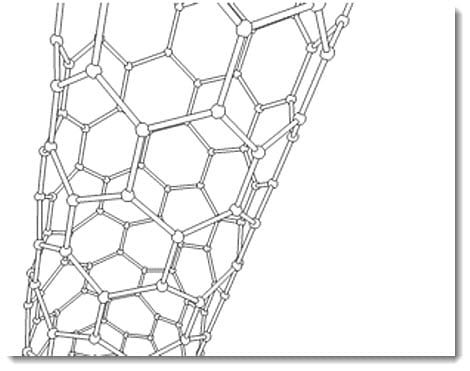
Carbon nanotubes may solve the challenge of energy efficiency
June 17, 2012Nanotechnology gains more attention for its uses in creating energy efficient electronics
Energy efficiency has recently become a subject of interest for many, but it has long been a problem that has kept the advance of alternative energy at bay. Clean energy systems are often praised for their ability to produce electricity without releasing harmful emissions, but many of these systems are still lacking in terms of efficiency. As alternative energy becomes more popular around the world, the science community has taken up the task of overcoming the challenge of energy efficiency, particularly as it exists in the world of electronics.
Research shows the promising capabilities of carbon nanotubes
Researchers from the Lawrence Berkeley National Laboratory, lead by Jeffrey Bokor, deputy director for science at the Lab’s Molecular Foundry, have been experimenting with carbon nanotubes recently. Carbon nanotubes have been chosen by researchers as a replacement for silicon technologies and it is believed that the nanotechnology will be capable of enabling the development of smaller electronics. Because of the powerful electrical, thermal, and mechanical properties of carbon nanotubes, they have been chosen as a promising technology for a number of fields, including alternative energy.
Stanford researchers show how technology could be used to break ground in energy efficiency
Over the past few years, a team of researchers and engineers from Stanford University have managed to make several breakthroughs with carbon nanotubes. Many of these breakthroughs paved the way to the development of energy efficient computing systems that made use of the nanotechnology. Bokor notes that Stanford engineers showed remarkable creativity in overcoming some of the inherent problems with nanotechnology in order to achieve higher levels of energy efficiency in computing. These breakthroughs may serve as a foundation for future research from the Lawrence Berkeley National laboratory.
Demand for efficient electronics grows due to new regulations
Energy efficiency continues to be a major hurdle for alternative energy and the evolving world of technology. In the U.S., new energy efficiency standards are calling for new electronics to consume less energy, or to do so more effectively. These standards have provided some momentum behind the research and development of more energy efficient technologies, such as carbon nanotubes.
Related article(s) and resources:
http://www.sciencedaily.com/releases/2012/06/120614131202.htm



 With over 15 years of reporting hydrogen news, we are your premier source for the latest updates and insights in hydrogen and renewable energy.
With over 15 years of reporting hydrogen news, we are your premier source for the latest updates and insights in hydrogen and renewable energy.